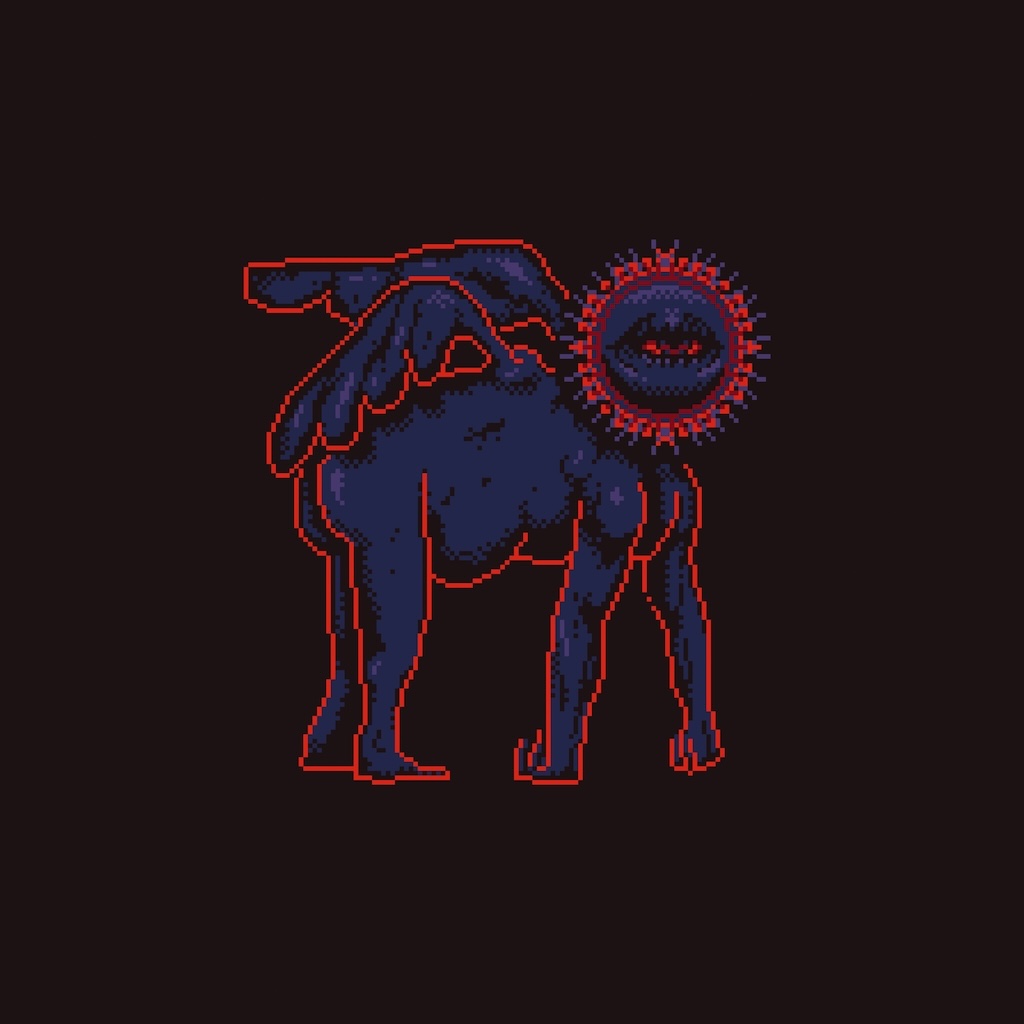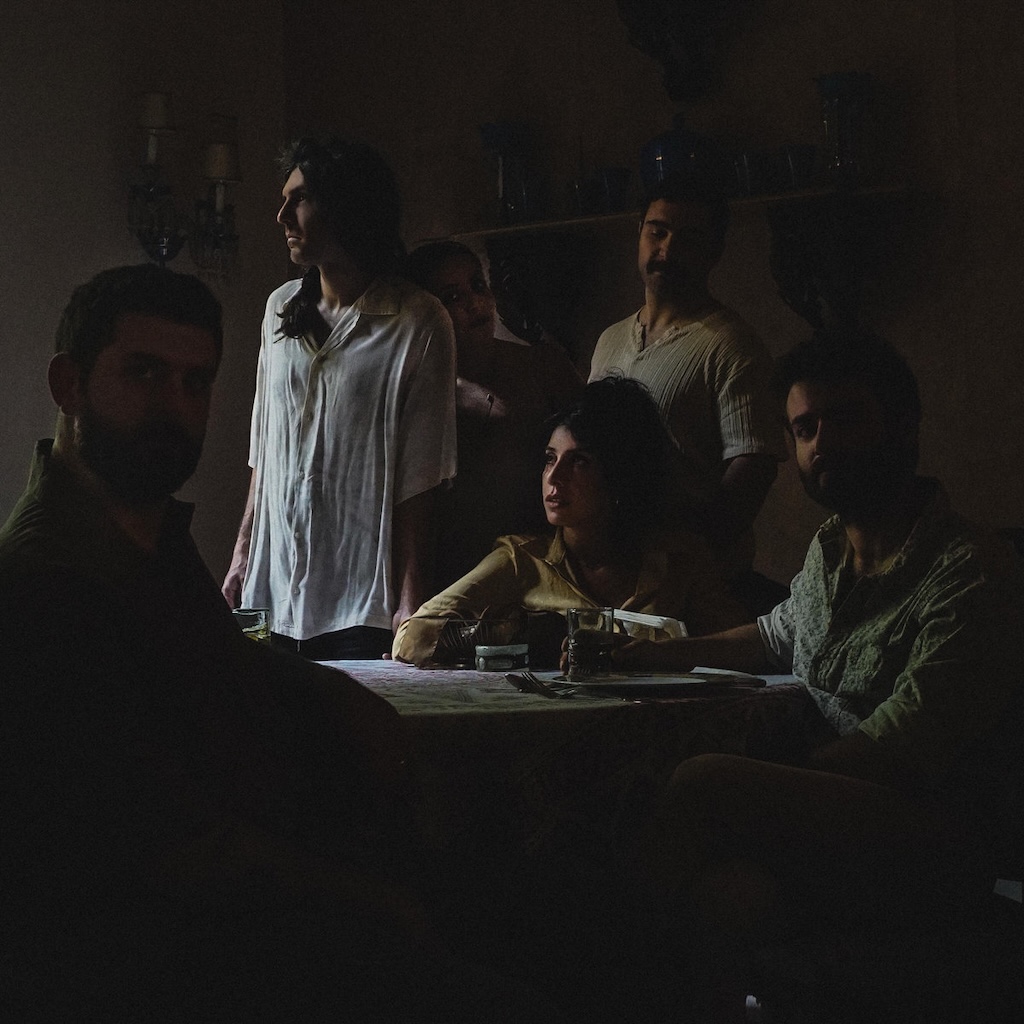SANAM

SANAM es un sexteto con sede en Beirut que combina distintos estilos musicales como el noise, krautrock, improvisación, electrónica y guiños al jazz, junto a la tradición árabe que corre por sus venas, expresada en la música y la poesía. Sus integrantes –procedentes de la vibrante escena independiente de Beirut- son Sandy Chamoun, voz, Antonio Hajj, bajo, Farah Kaddour en buzuq (instrumento de cuerdas), Anthony Sahyoun en la guitarra y sintetizador, Pascal Semerdjian en la batería y Marwan Tohme, guitarras.
Para su segundo álbum editado por el sello canadiense Constellation, se une al sexteto como productor, Radwan Ghazi Moumneh de Jerusalem In My Heart.
“Sametou Sawtan” -que en árabe significa “Oí una voz”- evoca la distancia y el desarraigo, dada la sensación –por parte del sexteto- de que mucha gente está abandonando el Líbano dado el contexto geopolítico. Este álbum se siente especialmente conmovedor, en el que Sandy Chamoun canta con letras de poetas del Oriente Medio y de su propia creación. Su tono melancólico y alicaído hace referencia a las atrocidades contra el pueblo palestino, lo que se expresa a través de la rabia, con fuertes descargas eléctricas de los riffs de guitarra y la percusión apabullante, lo que es matizado por los delicados acordes del buzuq, con su tono profundo y resonante.
“Harik” que abre el álbum lo hace con un avant-rock apabullante, en tanto “Goblin” se encuentra envuelto en un ambiente apesadumbrado. Le sigue “Habibon” que hace ciertos guiños al free-jazz, junto a acordes aéreos del buzuq. “Hadikat Al Ams” comienza con una potente percusión que continúa con el recitado de alguno de los poemas que ha tomado prestados, en tanto la intensidad de las guitarras va in-crescendo. “Hamam” reinterpreta una canción popular egipcia, al tiempo que “Sayl Damei» que deambula en ambientes más etéreos. En “Tatayoum” el ritmo motorik es la base para que las texturas electrónicas alternen con el buzuq.
En “Sametou Sawtan” que cierre el álbum, su poesía versa sobre la búsqueda de un lugar estable en medio de un mundo convulsionado, lo que posiblemente no se encuentre. Es esto último lo que clama este sexteto a través de una música que se impone por su fuerza y delicadeza.

SANAM is a sextet based in Beirut that combines different musical styles such as noise, krautrock, improvisation, electronic music, and hints of jazz, along with the Arab tradition that runs through their veins, expressed in music and poetry. Its members—hailing from Beirut’s vibrant independent scene—are Sandy Chamoun on vocals, Antonio Hajj on bass, Farah Kaddour on buzuq (string instrument), Anthony Sahyoun on guitar and synthesizer, Pascal Semerdjian on drums, and Marwan Tohme on guitars.
For their second album, released by the Canadian label Constellation, Radwan Ghazi Moumneh of Jerusalem In My Heart joins the sextet as producer.
‘Sametou Sawtan’ – which in Arabic means “I heard a voice” – evokes distance and uprooting, given the sextet’s feeling that many people are leaving Lebanon due to the geopolitical context. This album feels particularly poignant, with Sandy Chamoun singing lyrics by Middle Eastern poets and her own poems. Its melancholic and despondent tone refers to the atrocities against the Palestinian people, which is expressed through rage, with their strong electric guitar riffs and overwhelming percussion, which is nuanced by the delicate chords of the buzuq, with its deep and resonant tone.
‘Harik,’ which opens the album, does so with overwhelming avant-rock, while ‘Goblin’ is enveloped in a somber atmosphere. This is followed by ‘Habibon,’ which makes certain nods to free jazz, along with airy buzuq chords. ‘Hadikat Al Ams’ begins with powerful percussion that continues with the recitation of some of the poems she has borrowed, while the intensity of the guitars builds to a crescendo. ‘Hamam’ reinterprets a popular Egyptian song, while ‘Sayl Damei’ wanders into more ethereal atmospheres. On ‘Tatayoum,’ the motorik rhythm is the basis for electronic textures to alternate with the buzuq.
In ‘Sametou Sawtan,’ which closes the album, his poetry deals with the search for a stable place in the midst of a turbulent world, which may not be found. It is this latter point that the sextet cries out through music that stands out for its strength and delicacy.
https://sanambeirut.bandcamp.com
https://constellation.bandcamp.com

